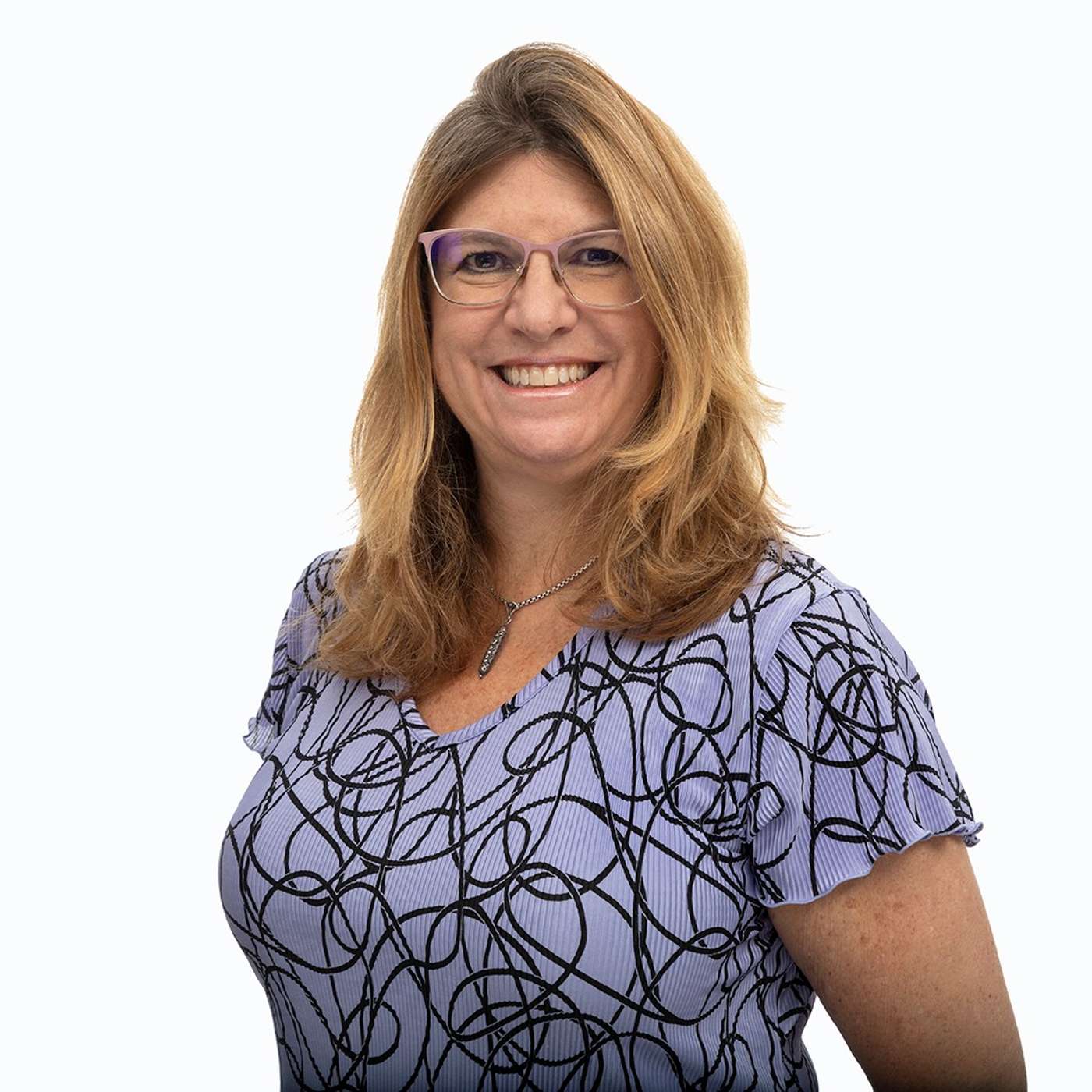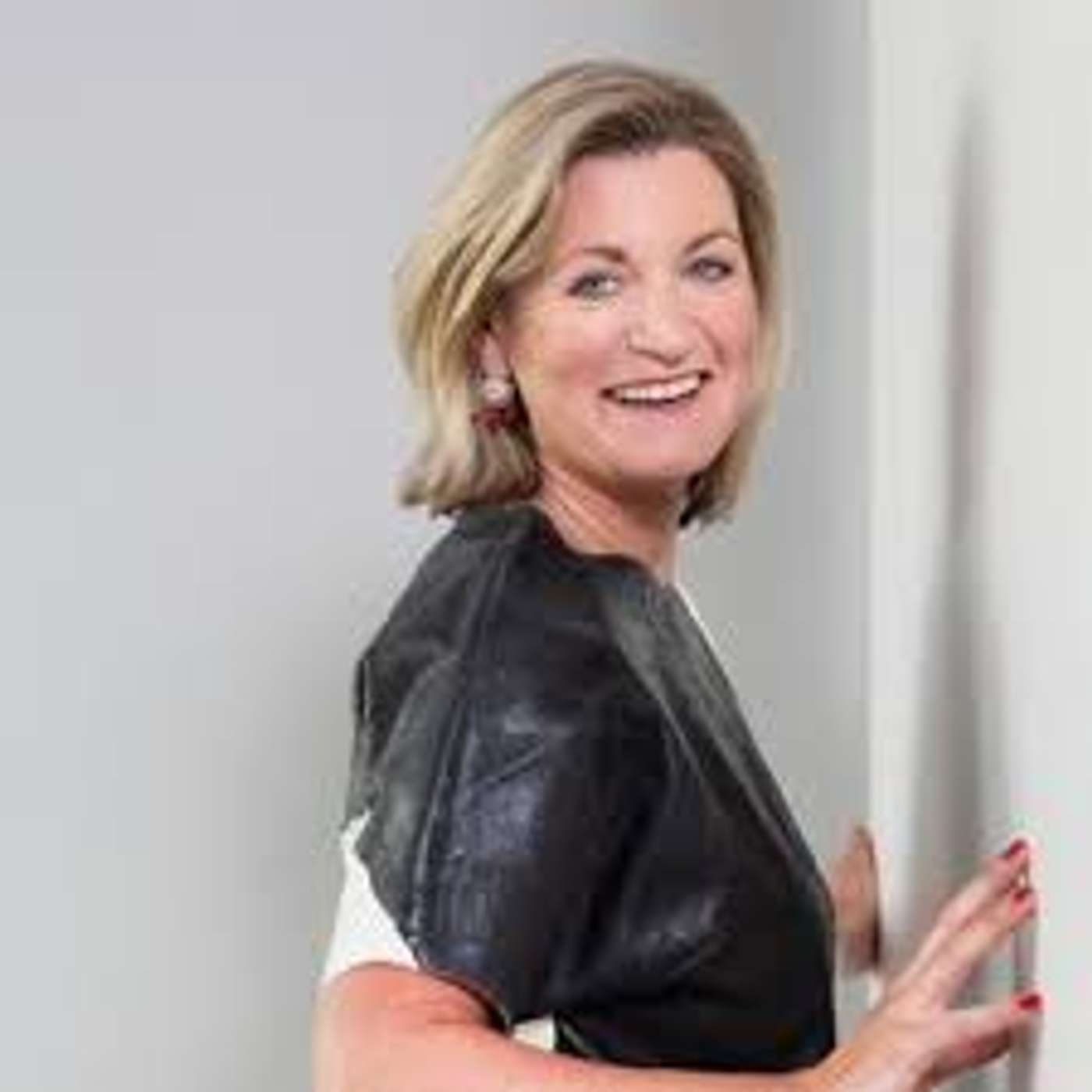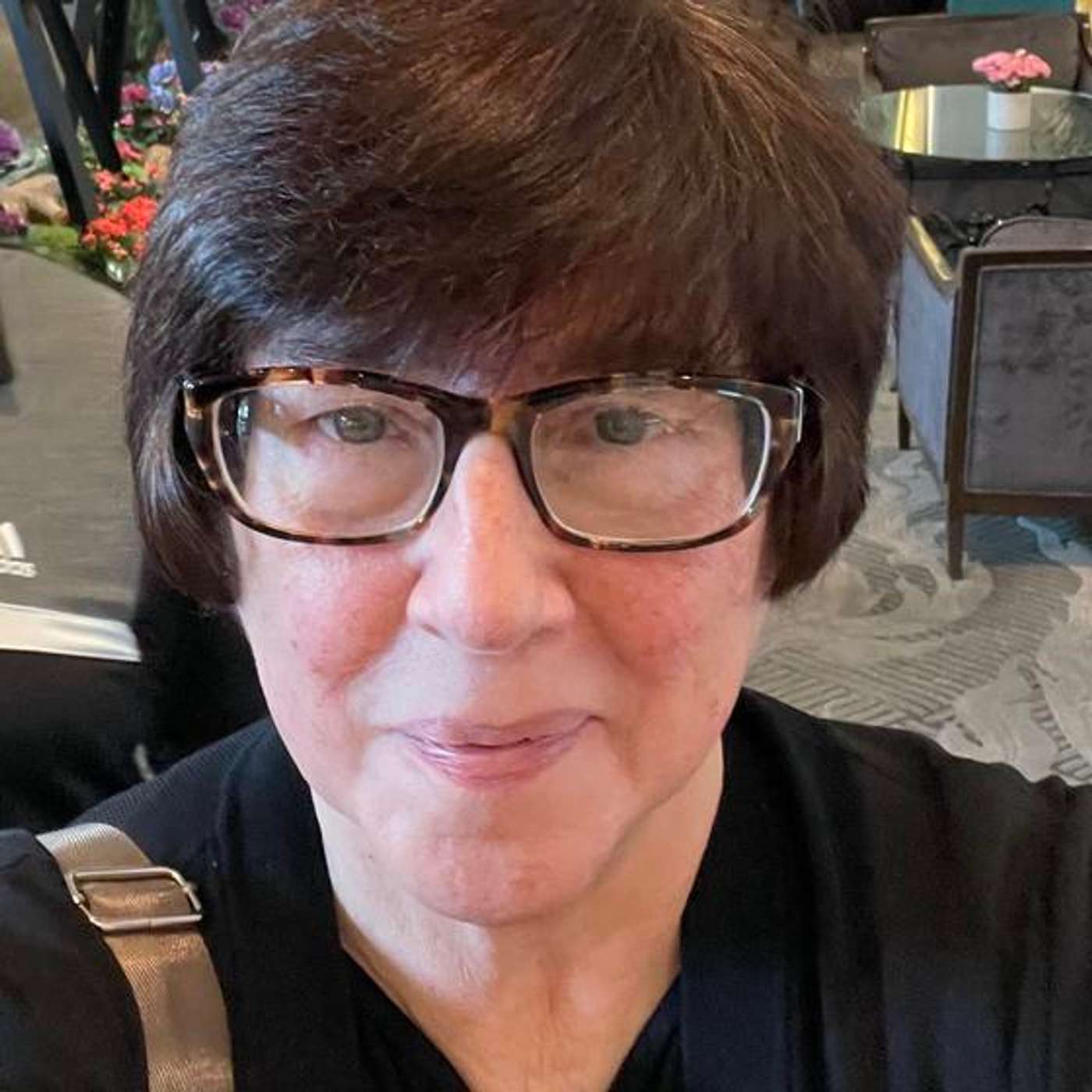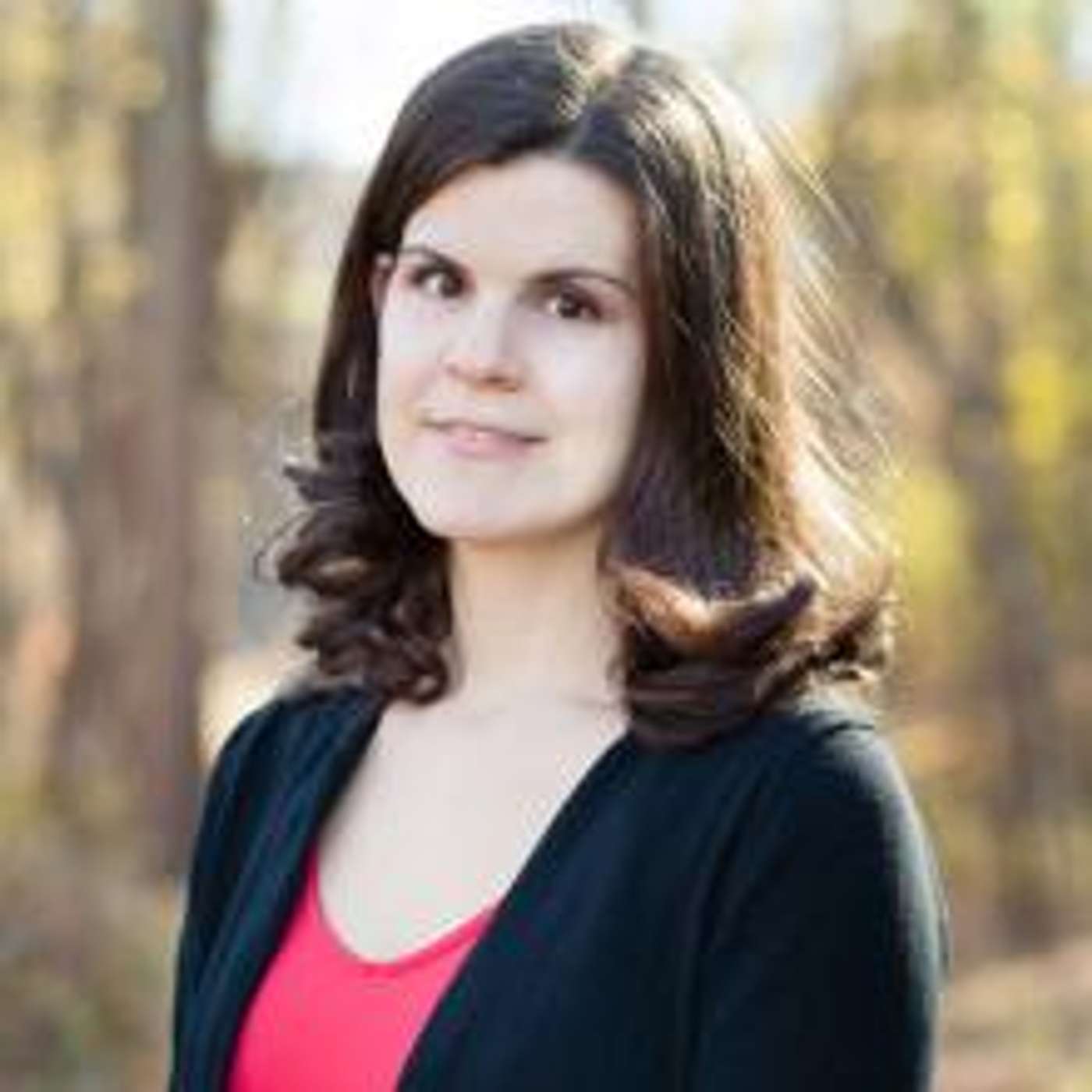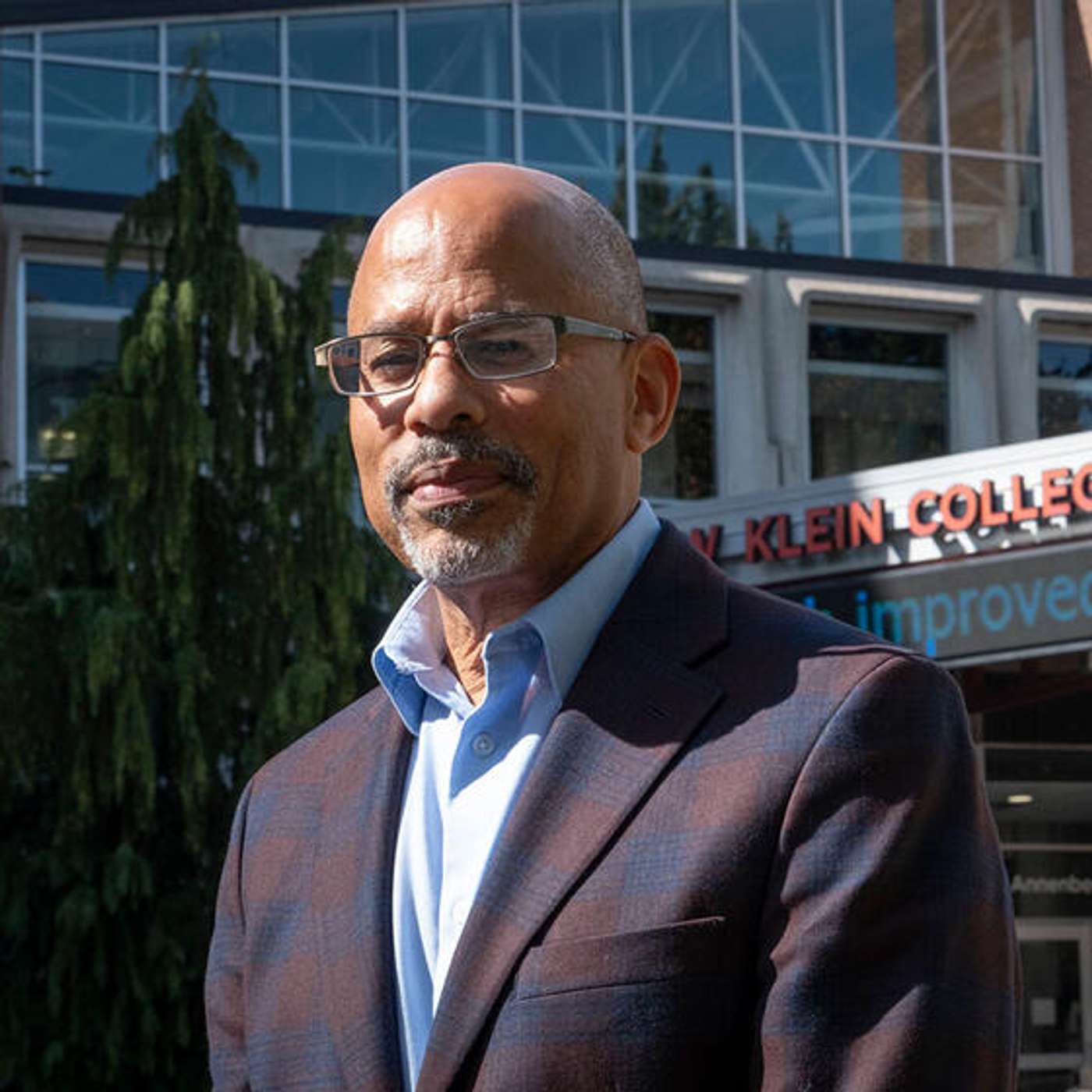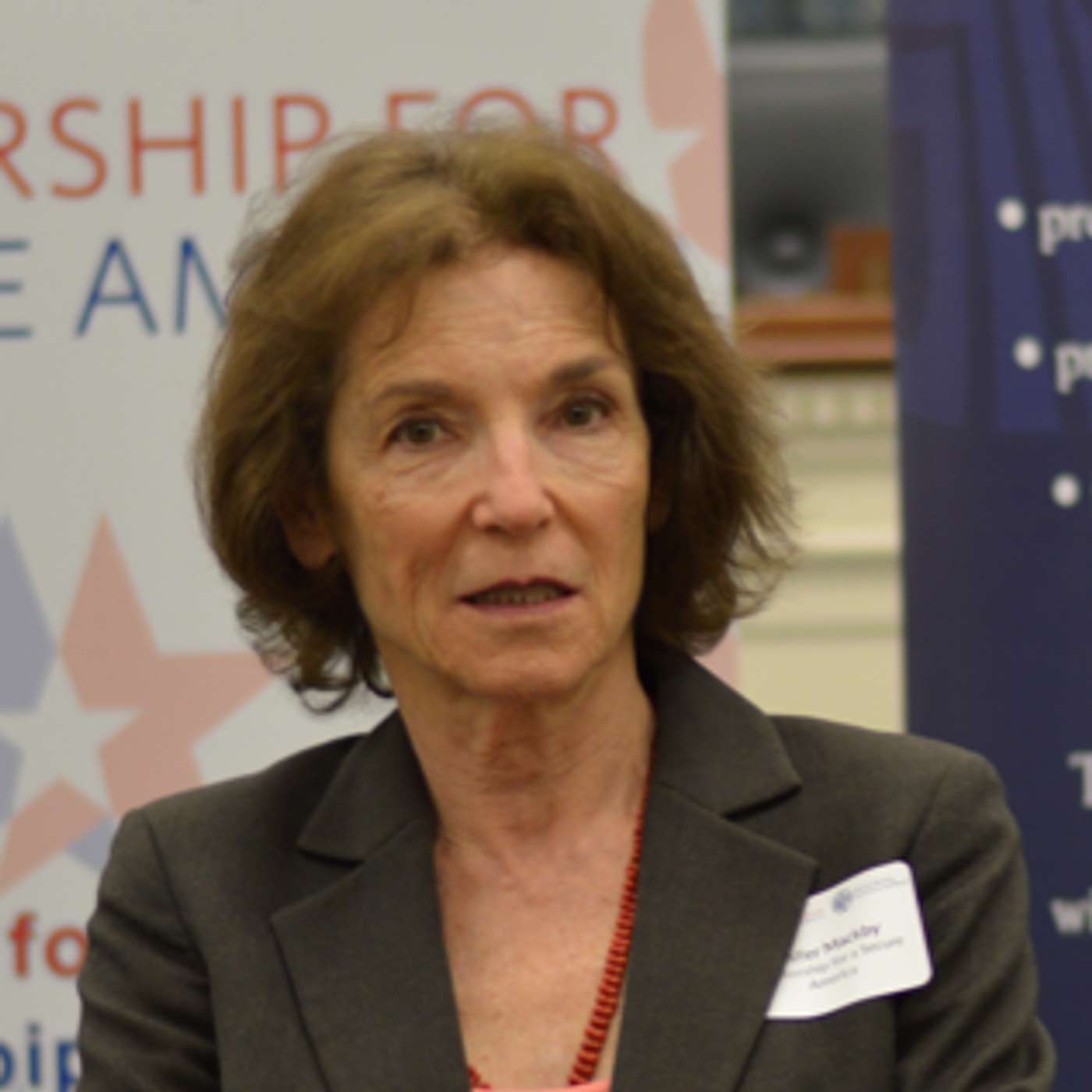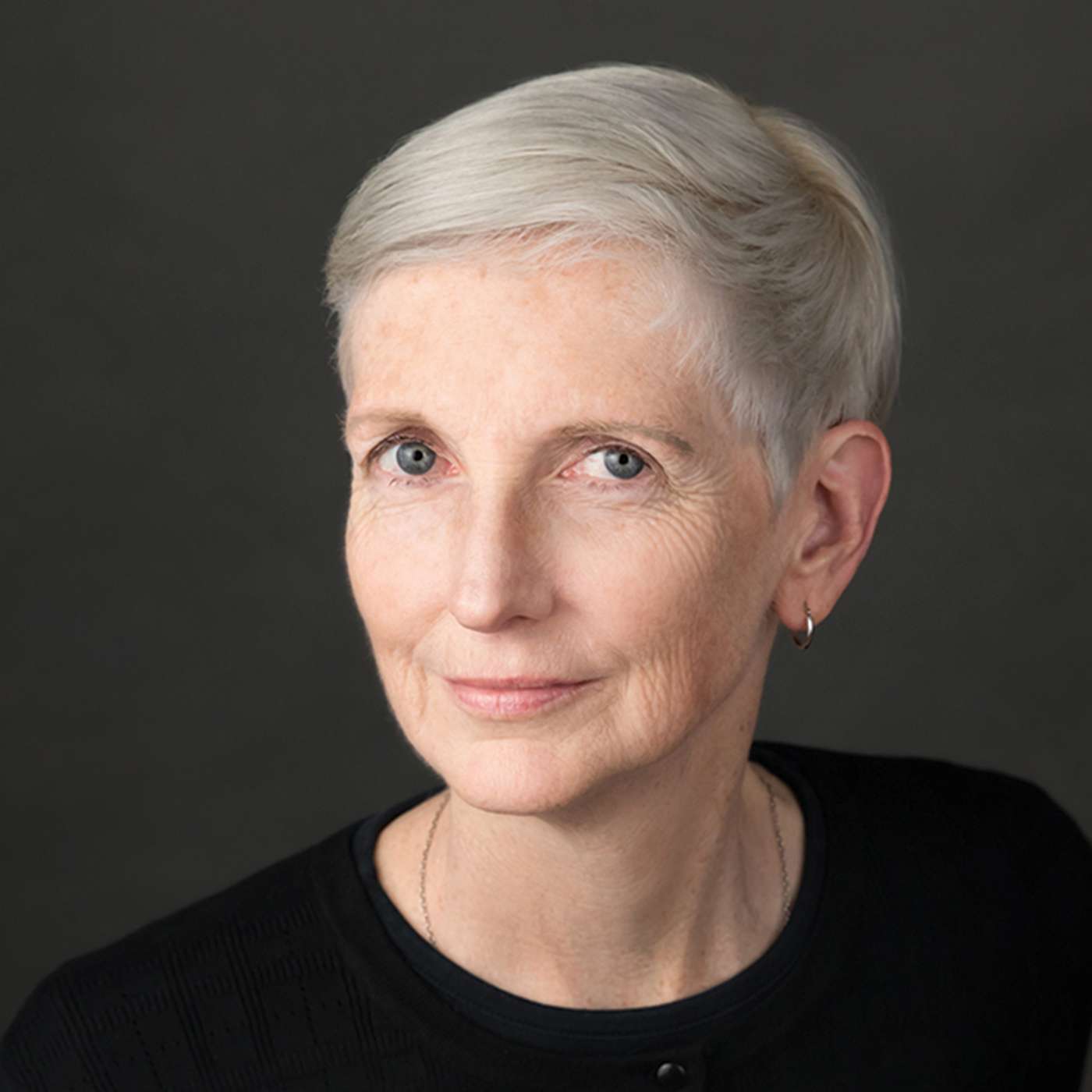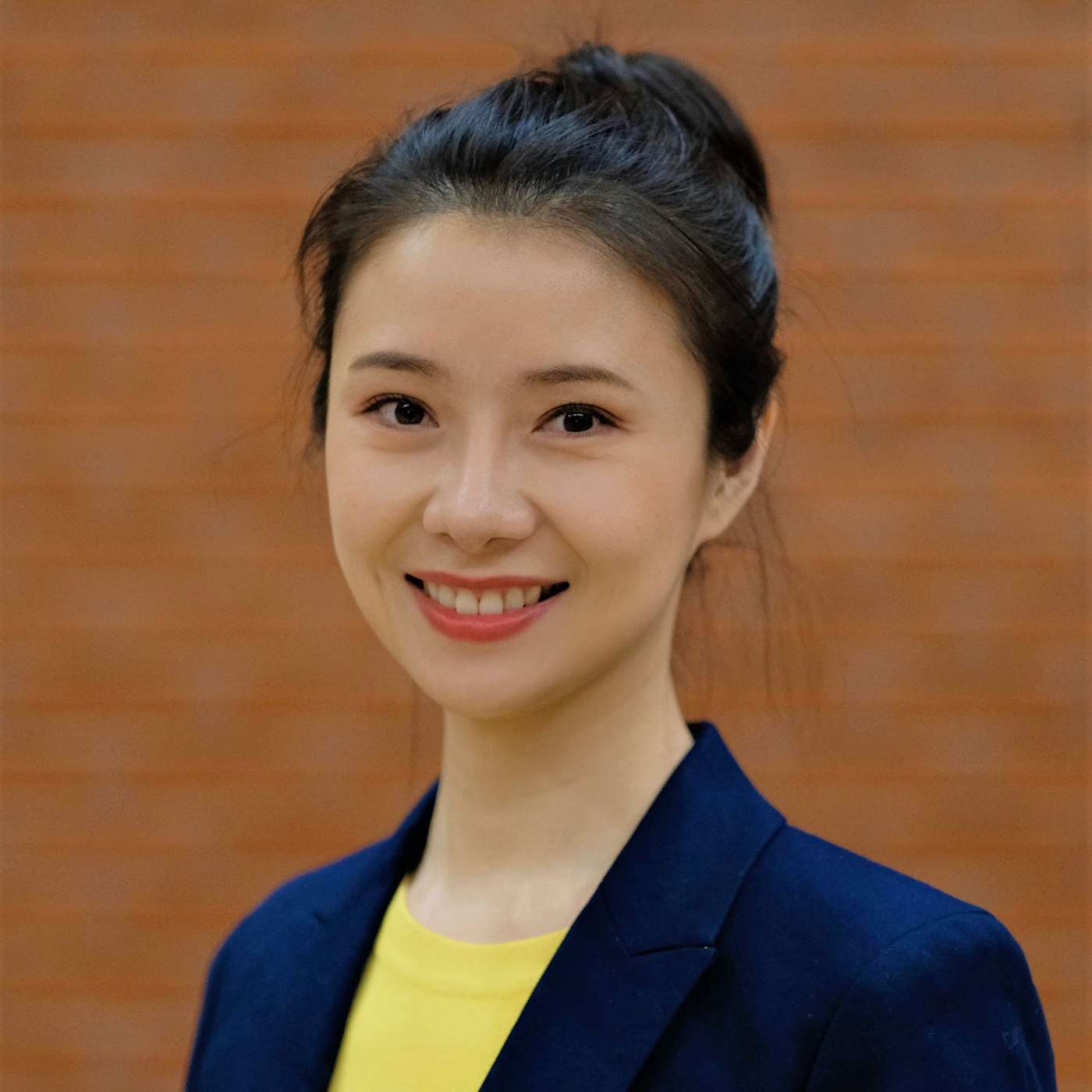Discover I’m Glad I Know That Now!
I’m Glad I Know That Now!

I’m Glad I Know That Now!
Author: M.-H. Tsai, L. Rees, J. Parlamis, M. A. Gross, D. A. Cai
Subscribed: 1Played: 7Subscribe
Share
©2021 by Negotiation and Conflict Management
Description
“I’m Glad I Know That Now!” features interviews with top scholars on a particular research topic that they’ve studied and is more general in content and focus.
36 Episodes
Reverse
Have you ever wondered how to communicate well to manage conflict? We often think of conflict as inherently bad, but instead, if we think of it as normal and natural, could there be such a thing as collaborative conflict management? It turns out that although we often shy away from conflict, it can actually be useful when we know how to handle it well. In particular, when we approach interactions with a mindset of Listening, Engaging, Acknowledging, Rapport building and Nurturing—that is, using the LEARN framework—we not only build trusting relationships, we also contribute to a workplace culture of collaboration that makes it easier to have difficult conversations when conflicts arise. Listen to this episode for a fascinating and thought-provoking conversation with Dr. Jameson about her research over the past thirty years on workplace conflict, and how you can more effectively manage yourself and others in these situations. Dr. Jessica Katz Jameson bio:Jessica Katz Jameson is Professor and Head of the Department of Communication at North Carolina State University. She studies organizational communication and conflict management, with special attention to third party intervention, the roles of identity and emotion in conflict, and interdisciplinary collaboration. She is author of Communication for Constructive Workplace Conflict (Wiley), which received a 2023 Outstanding Textbook Award from the National Communication Association Organizational Communication Division. Her work appears in outlets including Journal of Applied Communication Research, Negotiation and Conflict Management Research, Negotiation Journal, and Western Journal of Communication. She is a community engaged faculty fellow and serves as a volunteer mediator for the State of North Carolina and NC State University. Jessica received a Ph.D. in Communication from Temple University in Philadelphia, Pennsylvania. Works referenced in the episode:Jameson, J. (2023). Communication for Constructive Workplace Conflict. New York: Wiley-Blackwell.
Euwema, M., & Giebels, E. (2024). Conflict management and mediation. Edward Elgar. https://doi.org/10.4337/9781035331536
Peterson, R. S., & Brown, G. (2022). Disaster in the Boardroom: Six Dysfunctions Everyone Should Understand. Palgrave MacMillan. Peterson, R. S., & Mannix, E. A. (Eds.) (2003). Leading and Managing People in the Dynamic Organization. Erlbaum.
Jones, T. S., & Brinkert, R. (2008). Conflict coaching: Conflict management strategies and skills for the individual. Thousand Oaks, CA: Sage Publications.“Conflict Coaching: Adding a Critical Forum to Help Fix the Fuss”Tricia S. Jones, Prof. Temple University Where It Began – the MicroCommunication Scholar; Focus on Interaction Analysis and Stochastic Modeling in Divorce and Child-Custody Mediation (1985, 1989)Nascent ADR Field (Pound Conference 1977; burgeoning court mediation programs; fueled by need for responsive legal systems)State Justice Institute Grant (1996); Under-Utilization of Mediation; Concerns About Mediation EfficacyBuilding Conflict Management Systems and Processes to Empower PartiesWHAT WAS MISSING? A Theory-Informed One-on-One Third Party ADR ProcessCONFLICT COACHING: PURPOSE, PROCESS, SYSTEMS APPLICATIONSPURPOSE – CONFLICT ANALYSIS FOR STRATEGIC ACTION AND EMPOWERMENTPROCESS – Theory Into Practice; CCM MODEL (Jones & Brinkert, 2008)• Narrative Theory; Narrative Mediation• Drivers of Conflict; Identity, Emotion and Power• Visioning; Construction of Future Narrative• Skills Development for ImplementationSYSTEMS CONTEXTS AND APPLICATION – Developing CC for Systems Fit and Support Conflict Coaching Applications – The Macro WorkplaceFederal SectorADRA 1996, mandatedConflict Coaching included as Third Party Process under MD-110 and ADRA Inclusion in most Fed AgenciesIncreasingly Used as Pre-Mediation ProcessInternational OrganizationsUnited Nations, Secretariat and UNHCRWorld Bank, in Mediation Program ServicesPrivate Sector Ombuds & ADR, HR Community MediationNew York, NYUCS/NYSDRA (similar statewide systems in Maryland (MACRO), Heartland Mediation Association, Georgia, etc.62 County Community Mediation System; over 1,000 conflict coaches since 2013; infused in all areas of service (family, court, youth-based) Special EducationCA SELPAs, CADRE (OSERs National TA Organization)Special education conflict coaching throughout CA and CADRE national pilot project 2025-2027 Challenges/Opportunities and CatalystsChallenges and OpportunitiesMediation-centric field (then more than now)Maintaining frame of Conflict Coaching as ADR process rather than counseling/ “coaching”Getting caught in “only one best model” dynamicUnderstand and respect limits of the intervention Catalysts, Tidbits and InspirationsMeet Their Need (understand the system; honor the need)Follow the Heat (engage the emergent energy)Find and Nurture Champions of Innovation (Kings County – Brooklyn Criminal Courts)Dedicate Yourself to Theory to PracticeLeverage Fertile Fields (don’t expend energy and resources in the desert)Build Partnerships Outside the “Tower”; the “academy” may not be the best incubatorIf “They” Build It “They” Will Come (and Learn to Let Go)
In this two-part episode, we first talk with David Brown about his work as Executive Director of the Civic Coalition to Save Lives and efforts to reduce gun violence across Philadelphia, which declined by 41% from 2023 through 2024, but still has a long way to go. Prevention, intervention, and enforcement (PIE) are three pillars of violence prevention; these pillars require collaboration with communities. So how do those working to prevent gun violence engage with the community with intentionality and with respect? In part two, we talk with Dr. Jennifer Midberry, Associate Professor of Journalism in Klein College, about how she conducts research that addresses the ethics of journalistic coverage of gun violence. She will address her own research as well as talk about methods that rely on community members to understand issues of trauma and media coverage related to gun violence in a large urban setting. These episodes were originally conducted as a webinar sponsored by the Conflict Management Division of the Academy of Management as part of host Deborah Cai's work as a CM Division Scholar in Residence.
In this two-part episode, we first talk with David Brown about his work as Executive Director of the Civic Coalition to Save Lives and efforts to reduce gun violence across Philadelphia, which declined by 41% from 2023 through 2024, but still has a long way to go. Prevention, intervention, and enforcement (PIE) are three pillars of violence prevention; these pillars require collaboration with communities. So how do those working to prevent gun violence engage with the community with intentionality and with respect? In part two, we talk with Dr. Jennifer Midberry, Associate Professor of Journalism in Klein College, about how she conducts research that addresses the ethics of journalistic coverage of gun violence. She will address her own research as well as talk about methods that rely on community members to understand issues of trauma and media coverage related to gun violence in a large urban setting. These episodes were originally conducted as a webinar sponsored by the Conflict Management Division of the Academy of Management as part of host Deborah Cai's work as a CM Division Scholar in Residence.
Jenifer Mackby is a Consultant at the National Academy of Scientists and the InterAcademy Partnership, where she is co-director of a project on a Biological Weapons Convention Scientific Advisory Body. She is also a Non-Resident Executive Fellow at the Geneva Centre for Security Policy, and a Senior Advisor at the Partnership for a Secure America. Previously, she was a Fellow at the Center for Strategic and International Studies, a Senior Fellow at the Federation of American Scientists, and a Senior Political Affairs Officer at the United Nations. She has led projects on U.S.-U.K. Nuclear Cooperation, Asian Trilateral Nuclear Dialogues, Debating 21st Century Nuclear Issues, and a Russian-European project on bioterrorism, among others. She served as Secretary of the negotiations on the Comprehensive Nuclear-Test-Ban Treaty (CTBT), the Working Group on Verification of the CTBT Organization Preparatory Commission, a Review Conference of the Biological Weapons Convention, a UN Conference on Outer Space, and the Environmental Modification Convention Review Conference. Ms. Mackby was selected as Rapporteur for numerous international meetings, including the OSCE, European Commission Interparliamentary Conference, Wilton Park, and a study on Strengthening the IAEA. She has written extensively on international security and non-proliferation and co-authored or contributed to eight books, including: The Nuclear Tipping Point: Why States Reconsider their Nuclear Choice; Detect and Deter: Can Countries Verify the Nuclear Test Ban?; The Final Test; Global Biosecurity: Towards a New Governance Paradigm. She has written articles for theNew York Times, Newsweek, the Bulletin of the Atomic Scientists, The Nonproliferation Review, Arms Control Today, and other journals. She is fluent in French and Spanish, and has spoken on the above subjects at meetings in Austria, Canada, Chile, China, Japan, Jordan, the Netherlands, Qatar, South Korea, Switzerland, the U.K., and the U.S.
Mary (¨Mara¨) J. Waller (Ph.D., Univ. of Texas at Austin; MS, Univ. of Colorado - Denver; BBA, Univ. of Oklahoma - Norman) is Senior Research Scholar at the Department of Management, Colorado State University, past Senior Fellow at the U.S. Army Research Institute for Behavioral & Social Sciences, Professor Emerita at York University (Canada), and the 2024 INGRoup McGrath Award recipient for lifetime achievement in the study of groups. Her program of research centers on improving our understanding of team effectiveness during crises and critical situations."Crisis-Ready Teams: Data-Driven Lessons from Aviation, Nuclear Power, Emergency Medicine, and Mine Rescue” coauthored with Seth Kaplan. Published by Stanford Business Books (2024).
Have you ever wondered how feeling powerless can impact your behavior? It turns out that although we more often study those with high power—or those we think have high power, such as leaders—there’s a lot we do know about the effects of low power. In particular, a growing body of research suggests caution is warranted: powerlessness changes people’s behaviors in a variety of undesirable ways, such as telling self-promotional lies, competing covertly, justifying a flawed organizational system, and failing to leverage one’s BATNA in negotiations. However, relative power and status differences are ever-present, so it’s important that we learn how to manage and mitigate these downsides of low power. Listen to this episode for some fascinating and thought-provoking recent work on the realities we are likely to face in experiencing and being a part of situations that involve power differences between people, and how you can more effectively manage yourself in these situations. Dr. Jessica Li bio:Huisi (Jessica) Li is an Assistant Professor of Management and Organization at the University of Washington. Li’s research on the corruptive and undesirable effects of lacking power complements established findings on the corruptive nature of power itself. She also examines how power and status hierarchies impact team performance, especially within diverse and dynamic teams. Li employs diverse methodologies, including field surveys, experiments, archival data, and qualitative methods. Her work has been published in top journals, including Organization Science, Journal of Applied Psychology, Journal of Personality and Social Psychology, and Research in Organizational Behavior. She has collaborated with organizations like the U.S. Military Academy at West Point, Darden, etc. She serves on the editorial boards of Organization Science and Management and Organization Review and as a rep-at-large for the Conflict Management Division of the Academy of Management.Articles referenced in the episode:Zhong, Y & Li, H. (2023) Do Lower-Power Individuals Really Compete Less? An investigation of Covert Competition. Organization Science. https://doi.org/10.1287/orsc.2023.1684Li, H., Wang, X., Williams, M, Chen., Y.-R., & Brockner, J. (2023) My Boss is Younger, Less Educated, and Shorter Tenured: When and Why Status (In)congruence Influences Promotion System Justification. Journal of Applied Psychology. https://doi.org/10.1037/apl0001086Li, H., Chen, Y.-R., & Hildreth, J. A (2022). Powerlessness also Corrupts: Lower Power Increases Self-Promotional Lying. Organization Science. ttps://doi.org/10.1287/orsc.2022.1630
Have you ever wondered how trust really works? Why do we trust others, and why do they trust us? It turns out that trust involves judgments of both competence and integrity, each of which matter a lot for how we’re trusted, and how—and if!—we’re forgiven if we break that trust. Dr. Kim offers four guiding lessons of wisdom for managing trust. In his words: first, start with the premise that most of us want to be good. Second, recognize the complexity of truth—take time to exchange stories and take the time to really listen. Third, recognize the upside of intent—it can be easier to maintain and repair trust when others believe our intentions are good. Fourth, building off a memorable case study from the book, recognize the need to walk through the doors: the time needs to be ripe for real reconciliation to happen. In this episode, Dr. Peter Kim from the Marshall School of Business at the University of Southern California teaches us all about trust, reviewing decades of his own and others’ work to help us see how we can reap the benefits of trust, even though it can take hard work and unlearning ingrained habits and assumptions. Dr. Kim provides research-based insights and helpful practical tips for how we can get the most out of trust—for ourselves and others—in our lives. Dr. Peter Kim bio:Dr. Peter Kim is a Professor of Management and Organization at the Marshall School of Business at the University of Southern California. Dr. Kim’s research focuses on the dynamics of social misperception and its implications for negotiations, work groups, and dispute resolution. His research has been published in numerous scholarly journals, received ten national and international awards, and been featured by the New York Times, Washington Post, and National Public Radio. He serves as a Senior Editor for Organization Science journal, as an Associate Editor for the Journal of Trust Research, and on the editorial boards of the Academy of Management Review and Negotiation and Conflict Management Research. He is a past Associate Editor for the Academy of Management Review and past Chair of the Academy of Management’s Conflict Management Division. He has also just completed his first mass-market book called, How Trust Works: The Science of How Relationships are Built, Broken, and Repaired. It is available from most bookstores.Books referenced in the episode:Kim, P. H. (2024). How Trust Works: The Science of How Relationships are Built, Broken, and Repaired. New York: MacMillan.
What does a rowboat have to do with leadership? It turns out to be a powerful metaphor to understand both positive leadership and our own contributions—and potential areas for self-development—for the organization. In this episode, author, film producer, humanitarian, serial entrepreneur, former and current CEO, lifelong learner, and constant questioner Paul Fayad teaches us how to recognize the role of positive leadership and how to use it in organizations, to focus on the rowers and the work that they accomplish in order to increase productivity and lower turnover in organizations, and to understand that personalities are stable and that changing personalities that are not a good fit with our organizations is not where our focus should be. Instead, it should be on recognizing and rewarding positive behaviors in our rowers and on moving ourselves in most cases from sitters to rowers. Based on his real-world application over many decades of the science of leadership and behaviors to his own work in industry, Paul Fayad provides tested personal and professional insights and helpful practical tips for how we can recognize and use these principles in our daily lives. Fayad, P., & Lam, C., F. (2023). Shaping a Winning Team: A Leader's Guide to Hiring, Assessing, and Developing the People You Need to Succeed. New York: Amplify Publishing Group.Paul Fayad Bio Paul has owned, operated, and run multiple companies throughout his 40 years in business. Paul has consulted with multiple organizations nationwide to establish leadership programs based on positive leadership skills. He has lectured at universities and college business schools in the United States, Canada, and Hong Kong. Paul has been invited as a national speaker and has written numerous articles in trade journals and e-books. Paul recently co-authored the book Shaping a Winning Team: A leader’s guide to Hiring, Assessing and Developing the People You Need to Succeed. Recently Paul produced the Documentary Helambu, How One School Changed Everything, which was a winner of the London Film Festival and finalist at the Banff and Vancouver Film Festivals. He co-founded and is active with the East Side Youth Sports Foundation, dedicated to helping disadvantaged children in Detroit participate in sports and literacy programs. He is active with the Tsering’s Fund in Nepal, providing young girls and orphans who would otherwise face human trafficking the opportunity for education through scholarships. Paul is involved with Friends to Mankind and the Dhyan Vimal Institute based in Canada and Malaysia, providing coursework in leadership and self-development. Paul has worked with Habitat for Humanity locally and internationally. Links to entities referenced in the episode:https://positiveleader.com/https://elmlearning.com/https://esysf.com/https://www.tseringsfund.org/https://www.dhyanvimalinstitute.com/
Dr. Nicholas Hays is a faculty member at the Broad College of Business at Michigan State University. This episode focused on his research on the psychology of hierarchy. He discussed how different hierarchies influence individuals' experiences and group processes. Articles referenced in the episode:Bendersky, C., & Hays, N. A. (2012). Status conflict in groups. Organization Science, 23(2), 323-340. https://doi.org/10.1287/orsc.1110.0734Hays, N. A., & Bendersky, C. (2015). Not all inequality is created equal: Effects of status versus power hierarchies on competition for upward mobility. Journal of Personality and Social Psychology, 108(6), 867-882. https://doi.org/10.1037/pspi0000017Hays, N. A., Li, H., Yang, X., Oh, J. K., Yu, A., Chen, Y.-R., Hollenbeck, J. R., & Jamieson, B. B. (2021). A tale of two hierarchies: Interactive effects of power differentiation and status differentiation on team performance. Organization Science, 33(6), 2085-2105. https://doi.org/10.1287/orsc.2021.1540
Dr. Nicholas Hays is a faculty member at the Broad College of Business at Michigan State University. This episode focused on his research on the psychology of hierarchy. He discussed how different hierarchies influence individuals' experiences and group processes. Articles referenced in the episode:Bendersky, C., & Hays, N. A. (2012). Status conflict in groups. Organization Science, 23(2), 323-340. https://doi.org/10.1287/orsc.1110.0734Hays, N. A., & Bendersky, C. (2015). Not all inequality is created equal: Effects of status versus power hierarchies on competition for upward mobility. Journal of Personality and Social Psychology, 108(6), 867-882. https://doi.org/10.1037/pspi0000017Hays, N. A., Li, H., Yang, X., Oh, J. K., Yu, A., Chen, Y.-R., Hollenbeck, J. R., & Jamieson, B. B. (2021). A tale of two hierarchies: Interactive effects of power differentiation and status differentiation on team performance. Organization Science, 33(6), 2085-2105. https://doi.org/10.1287/orsc.2021.1540
Corinne Bendersky is a Professor and Area Chair of Management and Organizations at UCLA Anderson School of Management. She is an expert in workplace conflict, status, justice, and diversity and inclusion in teams and organizations. In recent projects, Dr. Bendersky has developed interventions to reduce the gender bias experienced by women who work in extremely male-dominated professions, such as the U.S. fire service. Her interventions have also been used to reduce the endorsement of sexist supervisors. Articles referenced in the episode:Danbold, F., & Bendersky, C. (2020). Balancing professional prototypes increases the valuation of women in male-dominated professions. Organization Science, 31(1), 119–140. https://doi.org/10.1287/orsc.2019.1288Danbold, F., & Bendersky, C. (2023). Perceived misalignment of professional prototypes reduces subordinates’ endorsement of sexist supervisors. Journal of Applied Psychology, 108(4), 676–685. https://doi.org/10.1037/apl0001038
Corinne Bendersky is a Professor and Area Chair of Management and Organizations at UCLA Anderson School of Management. She is an expert in workplace conflict, status, justice, and diversity and inclusion in teams and organizations. In recent projects, Dr. Bendersky has developed interventions to reduce the gender bias experienced by women who work in extremely male-dominated professions, such as the U.S. fire service. Her interventions have also been used to reduce the endorsement of sexist supervisors. Articles referenced in the episode:Danbold, F., & Bendersky, C. (2020). Balancing professional prototypes increases the valuation of women in male-dominated professions. Organization Science, 31(1), 119–140. https://doi.org/10.1287/orsc.2019.1288Danbold, F., & Bendersky, C. (2023). Perceived misalignment of professional prototypes reduces subordinates’ endorsement of sexist supervisors. Journal of Applied Psychology, 108(4), 676–685. https://doi.org/10.1037/apl0001038
Have you ever wondered if you’re being fair and consistent when you evaluate your own actions versus the actions of others from an ethical standpoint? It turns out that we’re often not, but this inconsistency isn’t necessarily because we’re trying to be self-serving. Instead, there are fundamental differences in our access to information related to ourselves versus others, such as the reasons underlying a certain behavior, or calculations of the behavior’s potential costs and benefits. These informational differences can create cognitive distortions in how we address four core questions – regarding the unethicality, liability, insolvency, and incompensability of behavior – and can help explain why we sometimes seem like ethical hypocrites. In this episode, Dr. Peter Kim from the Marshall School of Business at the University of Southern California teaches us how to recognize, understand, and respond most effectively to these four questions and how they influence our behaviors, our sense of morality, and our judgments of ourselves and others. Dr. Kim provides research-based insights and helpful practical tips for how we can recognize and use these important principles of ethical accounting in our daily lives. Dr. Peter Kim bio: Dr. Peter Kim is a Professor of Management and Organization at the Marshall School of Business at the University of Southern California. Dr. Kim’s research focuses on the dynamics of social misperception and its implications for negotiations, work groups, and dispute resolution. His research has been published in numerous scholarly journals, received ten national and international awards, and been featured by the New York Times, Washington Post, and National Public Radio. He serves as a Senior Editor for Organization Science journal, as an Associate Editor for the Journal of Trust Research, and on the editorial boards of the Academy of Management Review and Negotiation and Conflict Management Research. He is a past Associate Editor for the Academy of Management Review and past Chair of the Academy of Management’s Conflict Management Division. He has also just completed his first mass-market book that will be published by MacMillan on August 15, 2023 called, “How Trust Works: The Science of How Relationships are Built, Broken, and Repaired.” It is already available for pre-order from most bookstores.Articles referenced in the episode:Kim, P. H., Wiltermuth, S. S., & Newman, D. T. (2021). A theory of ethical accounting and its implications for hypocrisy in organizations. Academy of Management Review, 46(1), 172-191. https://doi.org/10.5465/amr.2018.0161 Kim, P. H., Ployhart, R. E., & Gibson, C. B. (2018). Editors’ comments: Is organizational behavior overtheorized?. Academy of Management Review, 43(4), 541-545. https://doi.org/10.5465/amr.2018.0233
Have you ever wondered if you’re being fair and consistent when you evaluate your own actions versus the actions of others from an ethical standpoint? It turns out that we’re often not, but this inconsistency isn’t necessarily because we’re trying to be self-serving. Instead, there are fundamental differences in our access to information related to ourselves versus others, such as the reasons underlying a certain behavior, or calculations of the behavior’s potential costs and benefits. These informational differences can create cognitive distortions in how we address four core questions – regarding the unethicality, liability, insolvency, and incompensability of behavior – and can help explain why we sometimes seem like ethical hypocrites. In this episode, Dr. Peter Kim from the Marshall School of Business at the University of Southern California teaches us how to recognize, understand, and respond most effectively to these four questions and how they influence our behaviors, our sense of morality, and our judgments of ourselves and others. Dr. Kim provides research-based insights and helpful practical tips for how we can recognize and use these important principles of ethical accounting in our daily lives. Dr. Peter Kim bio: Dr. Peter Kim is a Professor of Management and Organization at the Marshall School of Business at the University of Southern California. Dr. Kim’s research focuses on the dynamics of social misperception and its implications for negotiations, work groups, and dispute resolution. His research has been published in numerous scholarly journals, received ten national and international awards, and been featured by the New York Times, Washington Post, and National Public Radio. He serves as a Senior Editor for Organization Science journal, as an Associate Editor for the Journal of Trust Research, and on the editorial boards of the Academy of Management Review and Negotiation and Conflict Management Research. He is a past Associate Editor for the Academy of Management Review and past Chair of the Academy of Management’s Conflict Management Division. He has also just completed his first mass-market book that will be published by MacMillan on August 15, 2023 called, “How Trust Works: The Science of How Relationships are Built, Broken, and Repaired.” It is already available for pre-order from most bookstores.Articles referenced in the episode:Kim, P. H., Wiltermuth, S. S., & Newman, D. T. (2021). A theory of ethical accounting and its implications for hypocrisy in organizations. Academy of Management Review, 46(1), 172-191. https://doi.org/10.5465/amr.2018.0161 Kim, P. H., Ployhart, R. E., & Gibson, C. B. (2018). Editors’ comments: Is organizational behavior overtheorized?. Academy of Management Review, 43(4), 541-545. https://doi.org/10.5465/amr.2018.0233
Wendi L. Adair (Ph.D., Northwestern University) is Professor of Industrial-Organizational Psychology and Director of the Culture at Work Lab at University of Waterloo, Ontario. Wendi is co-Principal Investigator of Indigenous Workways, a collaborative project among faculty and Indigenous Student Centres in Ontario to develop a sustainable solution to underemployment among Ontario’s Indigenous workforce by empowering Indigenous youth with career mentors and opportunities, and Ontario employers with relational, respectful, reciprocal, and relevant workplace communication and climate practices. Her other current research examines the impact of culture on communication, for example what is said and what is not said, and interdependent work outcomes, such as communication effectiveness, conflict resolution, trust, and team performance. Her work appears in outlets including Journal of Applied Psychology, Negotiation and Conflict Management Research, Journal of Cross-cultural Psychology, and Academy of Management Discoveries. Wendi has served as Associate Editor of Negotiation and Conflict Management Research and President of the International Association for Conflict Management. Podcast Notes: More information about Indigenous Workways is available at the project website: https://indigenousworkways.org/indigenousworkways.org Indigenous Workways is supported by funding from the Ontario Research Fund – Research Excellence and the Social Science and Humanities Research Council as well as educational, private, and non-profit sponsors. This podcast discusses research from Master’s theses by Chloe Addie and Jaydum Hunt at the University of Waterloo, Ontario, Canada. The work has been presented at the Annual Meetings of the Canadian Psychological Association, the International Association for Conflict Management, and the Council for the Advancement of Native Development Officers. We extend sincere thanks and appreciation for our Indigenous team members who provided guidance and support to assure this research was done in a good way and who assisted us with interpreting the data. Migwech. Jean BeckerJean Becker is Inuk and a member of the Nunatsiavut Territory of Labrador. A grandmother, Jean has lived in Ontario for forty years and has been involved in grassroots urban Indigenous community building throughout that time in Wellington and Waterloo regions. Jean is currently a member of the Mayor’s Diversity, Equity and Inclusion Taskforce in Kitchener and a member of the Wellbeing Waterloo Region First Nations, Metis and Inuit Advisory and Advocacy Circle. She is the Associate Vice President, Indigenous Initiatives at the University of Waterloo. Actively involved in Indigenous ceremonies and advocacy work for Indigenous people outside of the academy locally and nationally, Jean is passionate about her work to implement decolonization in the academy. Lori CampbellLori Campbell is a 2-Spirit nēhiyaw āpihtākosisān iskwew from Treaty 6 territory in kīwētinohk kisiskāciwan. Lori is an intergenerational survivor of the Indian Residential School system and a child from the Sixties Scoop generation. She is proud to say that over the last 25 years she has managed to locate and contact not only her birth mom, but all 6 of her living siblings – scattered across three provinces in what is currently known as Canada. Her life experiences have contributed not only to her understanding of Indigenous issues, but also to her passion for education. Lori holds two undergraduate degrees (Indigenous Studies and Psychology), a master’s degree in Adult Education and is currently working toward a PhD in Social Justice Education through the University of Toronto. At the time of data collection, Lori helds the position of Director, Shatitsirótha’ Waterloo Indigenous Student Centre and looked after the Indigenous Studies academic programming at St. Paul's University College. Today Lori is Associate Vice President, Indigenous Engagement, at University of Regina. Melissa IrelandMelissa Ireland is a member of Curve Lake First Nation. At the time of data collection, Melissa was the Director of Indigenous Initiatives at Wilfrid Laurier University. Melissa currently oversees Indigenous student services and program at Laurier’s Waterloo and Brantford campuses. Melissa is also a proud Laurier and University of Waterloo alumna in the field of social work. After working many years integrating Indigenous ways of seeing, being, doing and knowing within university systems, Melissa moved to Qualia Counselling where she is engaged in Indigenous Relations and Outreach. Kimberly MitchellKimberly Mitchell is from Corner Brook, Newfoundland and is a member of the Qalipu Mi’kmaq First Nation. Kimberly holds degrees in Mechanical Engineering from Memorial University of Newfoundland & Labrador and the University of Waterloo. Indigenous culture and experience has been an interest for Kim since she was very young. Kim has a particular interest in ensuring employment equity for all Indigenous people. Kim currently resides in Southwestern Ontario.
Wendi L. Adair (Ph.D., Northwestern University) is Professor of Industrial-Organizational Psychology and Director of the Culture at Work Lab at University of Waterloo, Ontario. Wendi is co-Principal Investigator of Indigenous Workways, a collaborative project among faculty and Indigenous Student Centres in Ontario to develop a sustainable solution to underemployment among Ontario’s Indigenous workforce by empowering Indigenous youth with career mentors and opportunities, and Ontario employers with relational, respectful, reciprocal, and relevant workplace communication and climate practices. Her other current research examines the impact of culture on communication, for example what is said and what is not said, and interdependent work outcomes, such as communication effectiveness, conflict resolution, trust, and team performance. Her work appears in outlets including Journal of Applied Psychology, Negotiation and Conflict Management Research, Journal of Cross-cultural Psychology, and Academy of Management Discoveries. Wendi has served as Associate Editor of Negotiation and Conflict Management Research and President of the International Association for Conflict Management. Podcast Notes: More information about Indigenous Workways is available at the project website: https://indigenousworkways.org/indigenousworkways.org Indigenous Workways is supported by funding from the Ontario Research Fund – Research Excellence and the Social Science and Humanities Research Council as well as educational, private, and non-profit sponsors. This podcast discusses research from Master’s theses by Chloe Addie and Jaydum Hunt at the University of Waterloo, Ontario, Canada. The work has been presented at the Annual Meetings of the Canadian Psychological Association, the International Association for Conflict Management, and the Council for the Advancement of Native Development Officers. We extend sincere thanks and appreciation for our Indigenous team members who provided guidance and support to assure this research was done in a good way and who assisted us with interpreting the data. Migwech. Jean BeckerJean Becker is Inuk and a member of the Nunatsiavut Territory of Labrador. A grandmother, Jean has lived in Ontario for forty years and has been involved in grassroots urban Indigenous community building throughout that time in Wellington and Waterloo regions. Jean is currently a member of the Mayor’s Diversity, Equity and Inclusion Taskforce in Kitchener and a member of the Wellbeing Waterloo Region First Nations, Metis and Inuit Advisory and Advocacy Circle. She is the Associate Vice President, Indigenous Initiatives at the University of Waterloo. Actively involved in Indigenous ceremonies and advocacy work for Indigenous people outside of the academy locally and nationally, Jean is passionate about her work to implement decolonization in the academy. Lori CampbellLori Campbell is a 2-Spirit nēhiyaw āpihtākosisān iskwew from Treaty 6 territory in kīwētinohk kisiskāciwan. Lori is an intergenerational survivor of the Indian Residential School system and a child from the Sixties Scoop generation. She is proud to say that over the last 25 years she has managed to locate and contact not only her birth mom, but all 6 of her living siblings – scattered across three provinces in what is currently known as Canada. Her life experiences have contributed not only to her understanding of Indigenous issues, but also to her passion for education. Lori holds two undergraduate degrees (Indigenous Studies and Psychology), a master’s degree in Adult Education and is currently working toward a PhD in Social Justice Education through the University of Toronto. At the time of data collection, Lori helds the position of Director, Shatitsirótha’ Waterloo Indigenous Student Centre and looked after the Indigenous Studies academic programming at St. Paul's University College. Today Lori is Associate Vice President, Indigenous Engagement, at University of Regina. Melissa IrelandMelissa Ireland is a member of Curve Lake First Nation. At the time of data collection, Melissa was the Director of Indigenous Initiatives at Wilfrid Laurier University. Melissa currently oversees Indigenous student services and program at Laurier’s Waterloo and Brantford campuses. Melissa is also a proud Laurier and University of Waterloo alumna in the field of social work. After working many years integrating Indigenous ways of seeing, being, doing and knowing within university systems, Melissa moved to Qualia Counselling where she is engaged in Indigenous Relations and Outreach. Kimberly MitchellKimberly Mitchell is from Corner Brook, Newfoundland and is a member of the Qalipu Mi’kmaq First Nation. Kimberly holds degrees in Mechanical Engineering from Memorial University of Newfoundland & Labrador and the University of Waterloo. Indigenous culture and experience has been an interest for Kim since she was very young. Kim has a particular interest in ensuring employment equity for all Indigenous people. Kim currently resides in Southwestern Ontario.
Have you ever thought about whether emotions really matter in negotiation, or if we can simply ignore them? It turns out the answer is a resounding yes, they matter, and no, we cannot ignore them! There’s a lot we know about how emotions influence negotiation processes and outcomes, and a lot more we’re trying to find out. In this episode, Dr. Stéphane Côté from the Rotman School of Management at the University of Toronto teaches us important ways that emotions influence us, our counterparts, the negotiation process, and its outcomes. Dr. Côté also explains why it’s important to think carefully about which emotions you show, but not to fake your emotions, because the research shows that people will be able to tell and faking emotions will backfire. Dr. Côté provides research-based insights based on his meta-analyses of the growing body of emotions research, and some practical tips for how we can understand and leverage our own and others’ emotions more effectively in negotiation. Dr. Stéphane Côté bio:Stéphane Côté is Geoffrey Conway Chair in Business Ethics, Professor of Organizational Behaviour, and Director of the Clarkson Centre for Business Ethics at Rotman. His research focuses on how emotional intelligence relates to well-being and performance, and how social class and inequality relate to prosocial and ethical behavior in social and organizational settings. He is an Associate Editor at Administrative Science Quarterly and a Fellow of the Association for Psychological Science, International Association of Applied Psychology and Society for Personality and Social Psychology. He teaches courses on emotional intelligence in the MBA and Commerce programs.Articles referenced in the episode:Van Kleef, G. A., & Côté, S. (2018). Emotional dynamics in conflict and negotiation: Individual, dyadic, and group processes. Annual Review of Organizational Psychology and Organizational Behavior, 5, 437-464. https://doi.org/10.1146/annurev-orgpsych-032117-104714

